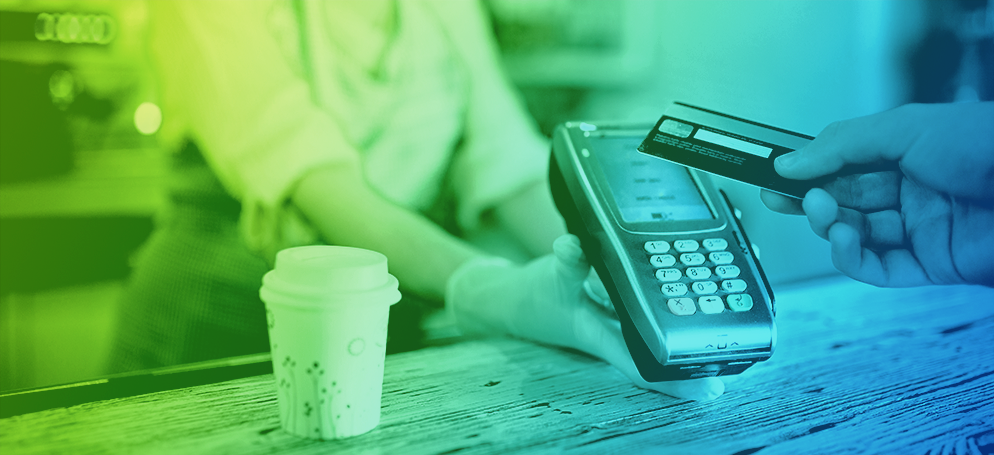BrightonSEO: International SEO – The Good, The Bad & The Ugly
BrightonSEO deck: The Good, The Bad and The Ugly of International SEO

When was the last time you used cash to pay for something? The chances are it was probably a while ago.
Since the advent of coronavirus, the use of cash has plummeted around the world. In the UK, there was a 60% fall in the number of withdrawals from cash machines during lockdown, and it was a similar story in other markets. At the same time, card payments and online shopping increased dramatically, raising the question – does coronavirus signal the end of the road for cash?
People have been using less cash because they have spent more time at home. But there has also been the fear factor – the idea that handling cash could spread the virus. This is despite assurances from organisations like the WHO, the Bank of England and the Bundesbank that the risk from handling cash is no greater than any other item in day-to-day life. To combat people’s fears, the Bank of China disinfected money and stored it for 14 days – effectively quarantining it – before recirculating it. The Central Bank in South Korea even burned it. One almost felt nostalgic for the days when our biggest worries about notes and coins were the traces of cocaine and even faeces they contain.
In the UK, to minimise the touching of PIN pads in stores, the contactless limit was increased from £30 to £45 at the beginning of April. Other markets did the same – for example, in Canada, the limit was raised from $100 to $250. Many stores stated they would only accept cards and contactless.
In the US, the Treasury made it clear that citizens would receive their coronavirus stimulus money more quickly if they opted for direct deposit instead of a paper cheque. (Cheques are a common financial tool of cash-based Americans, who use cheque – or rather check – cashing places to turn them into dollars and cents.)
In the same way that phone boxes gradually disappeared from our streets, the same could happen to cash machines. Indeed, before the crisis, about 250 ATMs disappeared every month from Britain’s high streets, and only about a third of transactions in the UK involve cash. In recent years, the decline of cash around the world has been driven by:
And it’s not just younger people driving this trend. Many older people have switched to online banking and contactless payments, especially since the crisis started. Halifax reported the number of over-65s signing up for online banking jumped by 63% since March.
In recent years, cash-operated machines have started disappearing from towns and cities around the world. Public utilities, transport companies and carparks increasingly want customers to pay by smartphone or card. This saves money for the operators because cashless machines do not need to be serviced or protected in the same way.
Germans are known for their love of cash, and are famously reticent about paying with cards let alone smartphones. Reasons for this include:
In 2017, a Bundesbank tracking study showed that 88% of Germans wanted to continue using cash. But coronavirus is changing things. Annalise, one of Oban’s LIMEs (Local In-Market Experts), based in Frankfurt, explained: “After the pandemic started, it was common to see signs in shops and restaurants saying, ‘Aus ggf. Anlass, bitten wir um Kartenzahlung!’ which means ‘cards only please’. This is because of the unease around using coins and bills at this time.”
(To read more about German online payment preferences, read Oban’s article here.)
Since 2000, serious attempts have been made in Sweden to replace cash with digital payments. The amount of cash in circulation has reduced considerably, and the concept of cash-free bank branches (typically as a first step to branch closures) was introduced. At the start of 2018, just 1% of Sweden’s GDP was circulating in cash, compared to 11% in the eurozone, 8% in the US and 4% in the UK. The Swedish payment app Swish, launched in 2014, is the most popular payment method. However, Sweden’s rush to a cashless society has raised issues of digital inclusion.
The prospect of a cashless society raises questions of what happens to more marginalised groups – who tend to be more reliant on cash either through habit, a lack of tech knowledge, or because they don’t want or aren’t able to participate in the formal banking system. For those without bank accounts, digital payments reduce financial access. For the very poor, even when they have bank accounts, they are often “under-banked” – that is, they don’t use cards to avoid incurring charges.
On top of that, for many small businesses and not-for-profits, cash is crucial to their survival. Cash is ideally suited to small, informal or one-off transactions – think charity boxes, tips, collection plates in church or Tzedakah boxes in synagogues, bake sales, car boot sales, buskers, beggars or even the tooth fairy – how will these adapt to a world without cash?
The BBC estimates that up to 20% of the population is reliant on cash. Anti-poverty campaigners believe a cashless society can only work if access to a bank account and the internet are treated as human rights. That’s presumably one reason why the city of San Francisco banned cashless stores in 2019 (pre-crisis).
However, it’s worth noting that in some countries, mobile banking is seen as a tool for economic inclusion. Kenya’s central bank found that the country’s M-Pesa system, named after Kenya’s currency, has boosted access to financial resources. The service works by tapping the country’s vast network of prepaid airtime resellers to act as cash-exchanging microbanks – often by young people in cities eager to send money back to the rural areas in which they grew up.
Pros
Cons
Money habits can be hard to break. It took years for ATMs to replace human tellers, and when banks set a date for withdrawing cheques, the public backlash forced a retreat. Whilst coronavirus has heightened awareness of the risks of handling cash, it’s also the case that in times of crisis, people value tangible things we can hold – hence the old ‘money under the mattress’ trope, and why people withdraw cash from banks when there’s trouble (the classic ‘run on the bank’).
Coronavirus has forced change at pace. With a return to normal, many businesses will continue to be cashless. However, it remains to be seen how soon we’ll be living in a totally cashless society – and how realistic this is for many societies. Estimates in the UK vary from 2 to 10 years. The challenge of ensuring digital inclusion is a significant one.
If you’re looking for an agency to help you grow your business internationally, Oban can help. To find out how, please get in touch.

Sarah Jennings | CEO
Oban International is the digital marketing agency specialising in international expansion. Our LIME (Local In-Market Expert) Network provides up to date cultural input and insights from over 80 markets around the world, helping clients realise the best marketing opportunities and avoid the costliest mistakes.